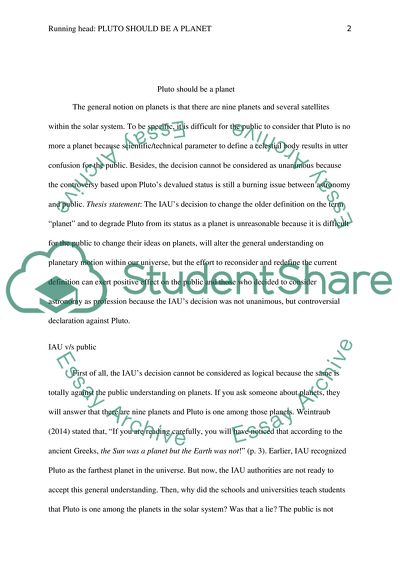Cite this document
(Pluto Should be a Planet Report Example | Topics and Well Written Essays - 2000 words, n.d.)
Pluto Should be a Planet Report Example | Topics and Well Written Essays - 2000 words. https://studentshare.org/astronomy/1860758-pluto-should-be-a-planet
Pluto Should be a Planet Report Example | Topics and Well Written Essays - 2000 words. https://studentshare.org/astronomy/1860758-pluto-should-be-a-planet
(Pluto Should Be a Planet Report Example | Topics and Well Written Essays - 2000 Words)
Pluto Should Be a Planet Report Example | Topics and Well Written Essays - 2000 Words. https://studentshare.org/astronomy/1860758-pluto-should-be-a-planet.
Pluto Should Be a Planet Report Example | Topics and Well Written Essays - 2000 Words. https://studentshare.org/astronomy/1860758-pluto-should-be-a-planet.
“Pluto Should Be a Planet Report Example | Topics and Well Written Essays - 2000 Words”. https://studentshare.org/astronomy/1860758-pluto-should-be-a-planet.


